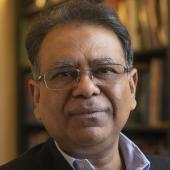
The Executive Board of the Program Committee invites a distinguished member of AIChE to present a comprehensive authoritative review of the chemical engineering science in his or her field of specialization. Selection criteria include:
- the quality and relevance of the accomplishments of the lecturer in the technical field likely to be the subject of the lecture
- the communication skills of the lecturer
- the value of the lecture to the meeting attendees and the members of the Institute
To honor Dr. John M. Prausnitz of the University of California, Berkeley's exceptional impact on the profession, society, and generations of chemical engineering students, AIChE’s Board of Directors has agreed to rename the Institute Lecture to the John M. Prausnitz AIChE Institute Lecture. The AIChE Foundation gratefully acknowledges the generosity of John’s closest peers who have made lead gifts to establish an endowment to support the Lecture and ensure John’s name will be recognized in perpetuity.
This is the 73rd AIChE Institute Lecture.
Supported by the AIChE Foundation.
This year's John M. Prausnitz AIChE Institute Lecturer is Arup K. Chakraborty, Institute Professor, Professor of Chemical Engineering, Physics, and Chemistry, Core Member of Institute for Medical Engineering & Science at Massachusetts Institute of Technology.
Viruses, Immunity, and Vaccines
Infectious disease-causing pathogens have plagued humanity since antiquity, and the COVID-19 pandemic has been a vivid reminder of this perpetual existential threat. Vaccination has saved more lives than any other medical procedure, and indeed, effective vaccines now promise to end the COVID-19 pandemic. However, we do not have effective vaccines against rapidly mutating viruses, such as HIV; nor do we have a universal vaccine against seasonal variants of influenza. The ability to develop effective vaccines that protect us from highly mutable viruses will help create a more pandemic-resilient world. In this lecture, I will describe how by bringing together approaches from engineering and the life and physical sciences, progress is being made to address this challenge. Specifically, I will describe approaches that aim to define the mutational vulnerabilities of mutable viruses, and design vaccines that elicit immune responses that can target these vulnerabilities. The application of these approaches toward the development of effective HIV and influenza vaccines will be discussed.

